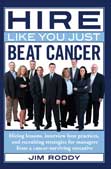5 Tremendous Interview Questions for Recent Graduates
 Here’s another rule of thumb (a principle whose broad application is not intended to be strictly accurate or reliable in every situation) that might make you gasp. Don’t hire kids out of college.
Here’s another rule of thumb (a principle whose broad application is not intended to be strictly accurate or reliable in every situation) that might make you gasp. Don’t hire kids out of college.
Everybody hires at least some recent college grads, right? I’ll talk about exceptions later, but hear me out on the merits of this:
- Kids just out of college haven’t built up the history that enables a prospective employer to accurately predict their long-term success at the job.
- They bring with them no bank of real-world experience doing what you need done.
- They won’t be able to teach you anything or contribute more than their labor.
- Training them to meet your standard requires more management labor than you should be willing to expend on one employee.
- Too large a percentage of your customers won’t take a kid seriously. It will be several years before the new hire is regarded as a trusted consultant.
- Professional jobs are exponentially more difficult than college course work. Recent graduates typically struggle to make the adjustment from academia (12–15 class hours per week, long breaks throughout the year) to a real job (40+ hours per week every week, no long breaks).
- There is a high probability that a recent grad will quit any first employer to see if the grass is greener somewhere else. How many 30-somethings do you know who have held the same professional job since the day after they graduated from college? I’m guessing that number is fewer than 10. (And, as good-looking as you are, I bet you have thousands of acquaintances.) Play the percentages. Don’t hire a kid fresh out of college if you want your new hire to grow your business.
Let’s talk now about the type of recent grad you should consider hiring. Tim joined our team right after he finished college, and he’s been a key contributor ever since. Almost every other recent graduate we hired has quit because, like pretty much everyone else on the planet, their life circumstances changed significantly between the ages of 22 and 32. So how was Tim different? First, he had real responsibilities — a fiancée and young child. That meant Tim had real-world experience that most kids don’t have. While going to school, he worked a full-time job to support his family. So while a 40-hour workweek is usually two or three times more effort than a college kid is used to giving, for Tim it was a respite from tests, tasks, and a teething toddler. When we asked for examples during our interviews, Tim provided them in great detail. He was uncommonly mature — a character trait atypical in kids who have recently surpassed the legal drinking age. Tim has continued to mature at Jameson, moving from sales training to sales to a successful run as a sales manager for a multi-million dollar product group.
1. What is the hardest thing you’ve ever had to do?
1a. What is the second hardest thing you’ve ever had to do?
The previous paragraph about Tim is an example of a strong answer to that question. He persevered through a legitimate struggle. But most kids, because they lack real-world experience, will talk about leaving home, switching majors, transferring schools, or confronting an inconsiderate roommate as the hardest thing they’ve ever done. Hold out for a candidate who has developed maturity through overcoming real-world obstacles.
2. How does this job fit into your overall career plan?
This question can quickly eliminate candidates whose own words tell you that their near-term career path doesn’t remotely match up with your company. I recall a 20-something candidate who told me that she wanted to be “anywhere but this town. I want to be in a big city.” Since our company wasn’t planning to leave town and the position couldn’t be adapted for a remote employee, her answer basically ended our interview process.
3. This will be your first job. Why should I believe this will be your last job, too? What data can you give me that in a few years you won’t change career plans or want to change employers?
There are open-ended questions and there are wide open-ended questions. This fits the latter category. On one hand, candidates can answer you with no data or offer only platitudes. On the other end of the spectrum, candidates can talk about their years of training, thousands of dollars invested in this line of work, and their history of enthusiasm for this specific activity. Either way, their answer to this question will provide you with information that can move you closer to your decision if this candidate could be a long-term fit or not.
4. Did you participate in any extracurricular activities? Did you lead or organize any extracurricular activities?
5. Did you work part time or during the summer to earn spending money or to help pay expenses?
Let’s take questions 4 and 5 together because they serve the same purpose. But before we do that, let me tell you a quick story. Many years ago, before I learned this rule of thumb, I was interviewing a soon-to-be college graduate from a local university. When I asked about his schedule outside of classwork – extracurricular activities or work – he replied, “I don’t have time for any of that. School takes up all my time.” I dug for specifics and learned he took only 12-15 credit hours per semester, none of the coursework involving labs, internships, or work study duties. And his school wasn’t exactly Ivy League caliber. Based on his past behavior, what were the chances he was going to work hard and provide extra effort for my company? And what were the chances he was going to flawlessly handle the stress of a 45-hour work week? Zilch. A more probable bet was that if we hired him, he’d duck out early on Thursdays for happy hour and would quit us when the job got hard.
Please Note: Asking these questions without understanding the why behind each one is dangerous. You won’t make the right hiring decisions because you won’t fully understand the best practice principles or the outcomes you’re shooting for. So if you haven’t read the book yet, please go back to Chapter 1 and start reading.
Disclaimer: The information in this book and on this website is provided with the knowledge that the publisher and author do not offer any legal or other professional advice. In the case of a need for any such expertise, consult with the appropriate professional.
This book and website do not contain all information available on the subject of hiring. This book and website have not been created to be specific to any individual’s or organization’s situation or needs. Every effort has been made to make this book and website as accurate as possible. However, there may be typographical and/or content errors. Therefore, this book and website should serve only as a general guide and not as the ultimate source of subject information.
This book and website contain information that might be dated and is intended only to educate and entertain. The author and publisher shall have no liability or responsibility to any person or entity regarding any loss or damage incurred, or alleged to have been incurred, directly or indirectly, by the information contained in this book or website. You hereby agree to be bound by this disclaimer.

